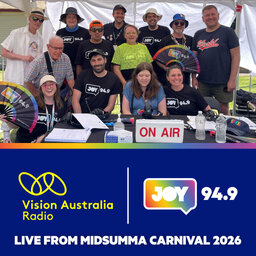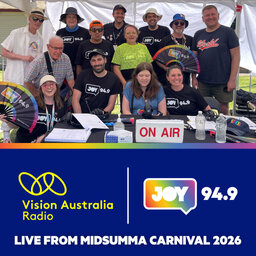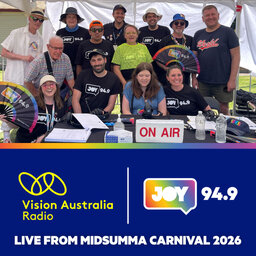Interview Highlight: Ian Clements - Top Blokes Foundation
After losing his vision as a young man Ian Clements wasn't sure what to do next, but an interest in social work and mentoring sparked a new career running a series of talks and workshops for boys and young men in the Hunter Valley region as part of the Top Blokes Foundation.
Hear from Ian as he catches up with Sam on Talking Vision to chat about his journey to where he is today, and messages for people out there experiencing vision loss and struggles with employment as a job seeker with a disability.
In 1 playlist(s)
Interview Highlights from Vision Australia Radio
Vision Australia Radio Interview Highlights shares a range of discussions initially broadcasted on o…Social links
Follow podcast
Recent clips

Midsumma Festival 2026, Carnival Day - Interview with Justin Clausen ‘He’s Every Woman’.
07:26

Midsumma Festival 2026, Carnival Day - Interview with Nilgun Guven, Vitae Veritas
08:15

Midsumma Festival 2026, Carnival Day - Interview with Collins Street Baptist Church & Melbourne Inclusive Church
14:06
 Interview Highlights from Vision Australia Radio
Interview Highlights from Vision Australia Radio